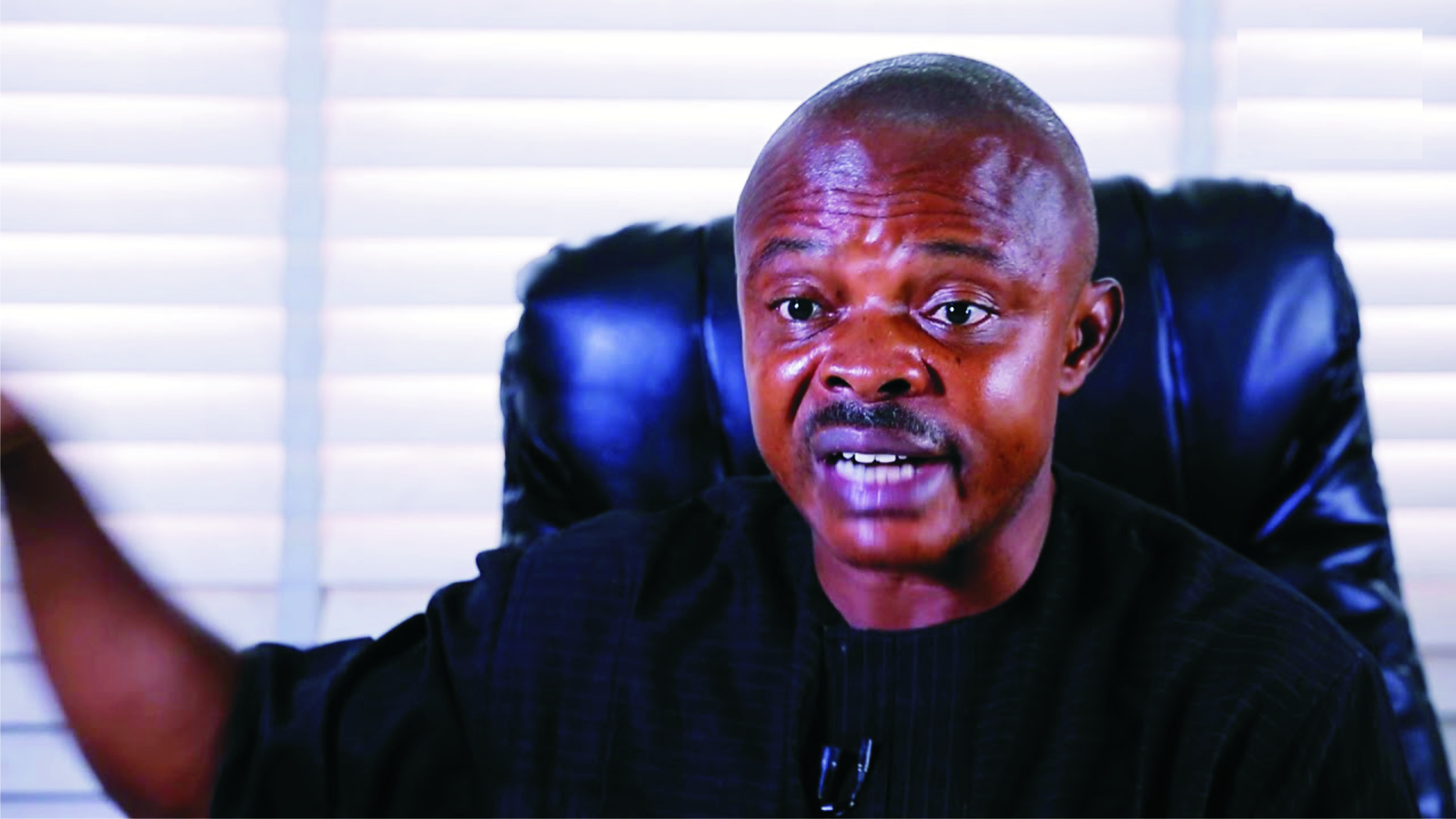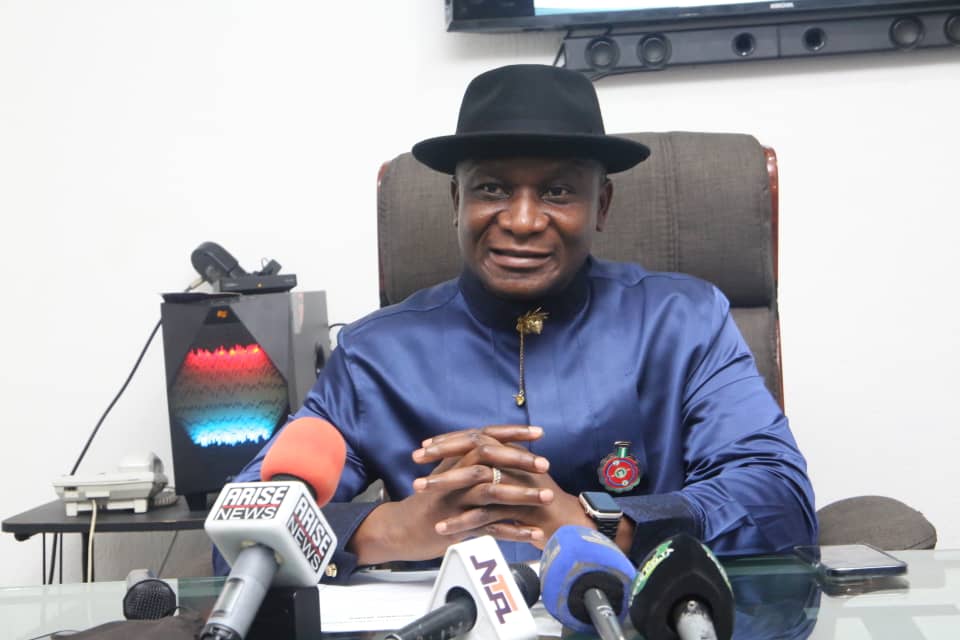News
Russia-Ukraine War: IFAD Raises Alarm Over Food Shortages, High Prices
The International Fund for Agricultural Development (IFAD), yesterday, raised the alarm over food shortages and high prices hitting parts of Africa as a result of the raging war between Russia and Ukraine.
Making this known was the President of IFAD, Gilbert Houngbo, while expressing deep concern over the impact it has on the Near East and North Africa.
He pointed out that it will be tragedy for the world’s poorest people living in rural areas who cannot absorb the price hikes of staple foods.
Meanwhile, according to IFAD, a quarter of global wheat exports come from Russia and Ukraine.
Forty percent of wheat and corn from Ukraine go to the Middle East and Africa, which are already grappling with hunger issues, and where further food shortages or price increases risk pushing millions more people into poverty.
Russia is also the world’s largest fertiliser producer.
Even before the conflict, spikes in fertiliser prices last year contributed to a rise in food prices by about 30percent.
IFAD’s analysis looks at the impact that the war will have on already poor small-scale producers and rural communities.
He said: “I am deeply concerned that the violent conflict in Ukraine, already a catastrophe for those directly involved, will also be a tragedy for the world’s poorest people living in rural areas who cannot absorb the price hikes of staple foods and farming inputs that will result from disruptions to global trade.
“We are already seeing price hikes and this could cause an escalation of hunger and poverty with dire implications for global stability.”
However, IFAD warned that as the war continues to rage in Ukraine, impacts of rising food prices and shortages of staple crops are already being felt in the Near East and North Africa region and spreading to the world’s most vulnerable countries, including in the Horn of Africa, with poorest people at greatest risk.
IFAD’s analysis shows that price increases in staple foods, fuel and fertiliser and other ripple effects of the conflict are having a dire impact on the poorest rural communities.
For example: In Somalia, where an estimated 3.8million people are already severely food insecure, the costs of electricity and transportation have spiked due to fuel price increases.
This has a disproportionate impact on poor small-scale farmers and pastoralists who, in the face of erratic rainfall and an ongoing drought, rely on irrigation-fed agriculture powered by small diesel engines for their survival.
In Egypt, prices of wheat and sunflower oil have escalated due to Egypt’s reliance on Russia and Ukraine for 85percent of its wheat supply and 73percent of its sunflower oil.
In Lebanon, 22 per cent of families are food insecure and food shortages or further price hikes will exacerbate an already desperate situation.
The country imports up to 80percent of its wheat from Russia and Ukraine, but can only store about one month’s worth of the crop at a time due to the blast in Beirut’s port in 2020 that destroyed the country’s major grain silos.
Central Asian countries that rely on remittances sent home by migrant workers in Russia have been hit hard by the devaluation of the Russian ruble.
In Kyrgyzstan, for example, remittances make up more than 31per cent of the GDP, the majority of which comes from Russia.
Remittances are crucial for migrants’ families in rural areas to access food, education and other necessities.
IFAD’s experts stress that small-scale producers are already reeling from the impacts of the COVID-19 pandemic, droughts, cyclones and other natural disasters.
Their incomes are expected to be affected by the rising cost of inputs, reduced food supplies and disrupted markets.
This is also likely to have devastating and long-term impacts on their nutrition and food security.
However, IFAD is working closely with governments, rural communities and other partners and exploring ways to step up global support to the regions most affected, including building on its Facility for Refugees, Migrants, Forced Displacement and Rural Stability (FARMS), which supports agricultural livelihood opportunities for refugees and host communities.
It is also intensifying its work to reduce post-harvest losses, improve storage and strengthen local and regional food markets.
The IFAD boss also maintained that, “IFAD is committed to increasing the resilience of the world’s poorest rural people who are critical for producing a third of the world’s food.
“We must do all we can to ensure they have the resources to keep producing food and be protected from additional shocks.
“In the short-term, however, it will be difficult to mitigate the global impacts of his crisis. I join the UN Secretary-General’s call to end the conflict now and restore peace. It is the only solution to avert global catastrophe.”
IFAD’s experience during previous food crises shows that interventions such as stabilising local market systems, cash transfers, strengthening remittances, setting up savings and loans groups, training and subsidies for agricultural enterprises, and value chain investments (including infrastructure, support for microfinance institutions, aggregation services that link farmers to markets) are effective in building resilience and reducing the impact of shocks.
IFAD will draw on this experience and its unique expertise as an International Financial Institution and UN rural development agency to guide its response to the current crisis.
News
May Day: Labour Seeks Inclusiveness In Policy-making

The Organised Labour yesterday, called on the Federal Government to ensure inclusiveness in policy making and guide against erosion of rights, such as free speech and association.
The President, Nigeria Labour Congress (NLC), Mr Joe Ajaero made the call at the 2025 Workers’ Day celebration held at the Eagle’s Square, Abuja.
The Tide source reports Ajaero and the President, Trade Union Congress, Mr Festus Osifo delivered a joint statement on behalf of the organised labour at the event.
Ajaero described May Day as, not only a moment to honour workers’ sacrifices, but also a platform to demand justice and accountability from those in public office.
He frowned at the alleged suppression of protests, and the erosion of rights of workers by some agents
According to him, workers have a duty to resist economic injustice, insecurity, and policies that undermine their dignity.
Speaking on the theme of the day, the NLC President underscored the need for Nigerian workers to reclaim the civic space and resist policies that contribute to worsening economic conditions.
“Our theme this year – “Reclaiming the Civic Space in the midst of Economic Hardship – reflects the urgent need for citizens to protect democracy and push back against repression.
“The civic space, where Nigerians express their concerns and challenge injustices is shrinking.
“If we fail to reclaim this space, the foundation of our democracy risks collapse,” he said
Ajaero, therefore, urged workers to unite and resist division, fear, and despair.
He also urged them to mobilise and organise for change, declaring that the right to demand better conditions is non-negotiable.
“Without workers, there is no society; without labour, there is no development. We must take our place in the fight for economic justice and democratic governance.”
Speaking in the same veins, Osifo said workers are the backbone of the nation—the educators, healthcare providers, builders, farmers, and innovators who sustain its economy -.
He stressed the need for the labour to reclaim the civic space even in the midst of economic hardship.
News
2025 UTME: JAMB Disowns Site Requesting Payment From Candidates

The Joint Admissions and Matriculation Board (JAMB) has disassociated itself from a fraudulent site requesting payments from candidates who missed the ongoing 2025 Unified Tertiary Matriculation Examination (UTME).
The board said that the site, “Copyrightwriter Personal J Rescheduling Flw” and account number 8520641017 at Sterling Bank, associated with it, are scam.
The disclaimer is contained in a statement made available to newsmen in Abuja on Thursday by the Board’s Public Communication Advisor, Dr Fabian Benjamin.
Benjamin said the account is being exploited to defraud unsuspecting candidates who missed their UTME.
“We issue this urgent notice to inform the public about this nefarious scheme targeting candidates who were unable to participate in the UTME.
“Some unscrupulous individuals are deceitfully soliciting payments of N15,700 under the false pretence of offering rescheduling services for the examination.
“Let us be unequivocal: this, it is a blatant scam, and we are confident that the public will not fall prey to such cheap and regressive tactics.
” The individuals behind this scam have no affiliation with JAMB or any legitimate government agency.
“The account details provided in these communications are entirely fictitious and bear no connection to any official processes; they exist solely for the purpose of perpetrating fraud,” he said.
Benjamin called on Sterling bank to take immediate and decisive action against this criminal activity.
According to him, JAMB has reported the matter to the relevant security agencies and actively pursuing those responsible for this deceitful act.
He further said that “JAMB does not reschedule examinations for candidates who miss their scheduled tests due to reasons unrelated to the Board’s actions”.
He, however, said that the Board is conducting a thorough investigation for candidates whose biometrics failed during verification and were thus unable to sit for the examination.
He said those without discrepancies would be invited to retake the examination at no cost , stressing that “no cost is required”
“It is imperative to understand that JAMB does not charge any fees for examinations after a candidate has completed their registration.
“We strongly urge all candidates to remain vigilant and not to succumb to these fraudulent schemes.
“Protect yourselves and report any suspicious activity immediately,” he explained.
News
NDDC Seeks UN’s Support To Accelerate Niger Delta Development

The Niger Delta Development Commission (NDDC) has expressed its willingness to partner with the United Nations (UN) to accelerate the development of the Niger Delta region.
Dr Samual Ogbuku, Managing Director of the NDDC, made the appeal in a statement issued by the commission’s Director of Corporate Affairs, Mrs Seledi Thompson-Wakama, in Port Harcourt on yesterday.
According to the statement, Ogbuku sought the UN’s support during his visit to the UN Resident and Humanitarian Coordinator (UNRHC), Mr Mohammed Fall, at the UN regional office in Abuja.
He called on the global body to provide the NDDC with technical assistance and expert services to support the region’s development.
“We are eager to collaborate with the UN, recognising that the state governments in the region and the NDDC alone cannot achieve the level of regional development required,” he said.
Ogbuku identified key areas where support would be needed, including the provision of portable and affordable drinking water powered by high-tech solar energy sources.
He also highlighted the importance of reforesting the mangrove swamps, which have been severely damaged by decades of environmental degradation caused by oil exploration in the Niger Delta.
“Although the NDDC has made progress in providing solar-powered streetlights across the region, we still require UN support in delivering solar energy solutions for residential buildings.
“We also wish to explore the possibility of installing solar mini-grids in homes across communities, which would boost local commerce and trade,” he added.
The NDDC managing director further appealed for increased UN involvement in areas such as healthcare, education, youth training, gender development, and food security.
Ogunku stated that such interventions would significantly enhance the standard of living in the region.
In response, Fall affirmed the UN’s readiness to collaborate with the NDDC to fast track development in the Niger Delta.
He assured that the UN would support initiatives in food security, job creation, education, and renewable energy, among other areas.
“We aim to approach development in the Niger Delta holistically, rather than focusing solely on environmental pollution.
“This is merely an entry point; however, the UN’s development vision aligns with the Sustainable Development Goals (SDGs), which are designed to positively impact various aspects of people’s lives,” Fall stated.
He assured the NDDC of continued and fruitful engagements to drive the region’s development.

